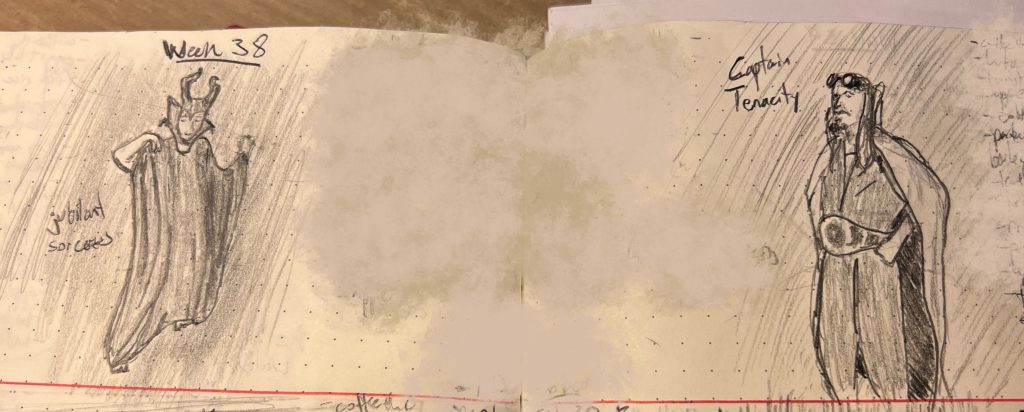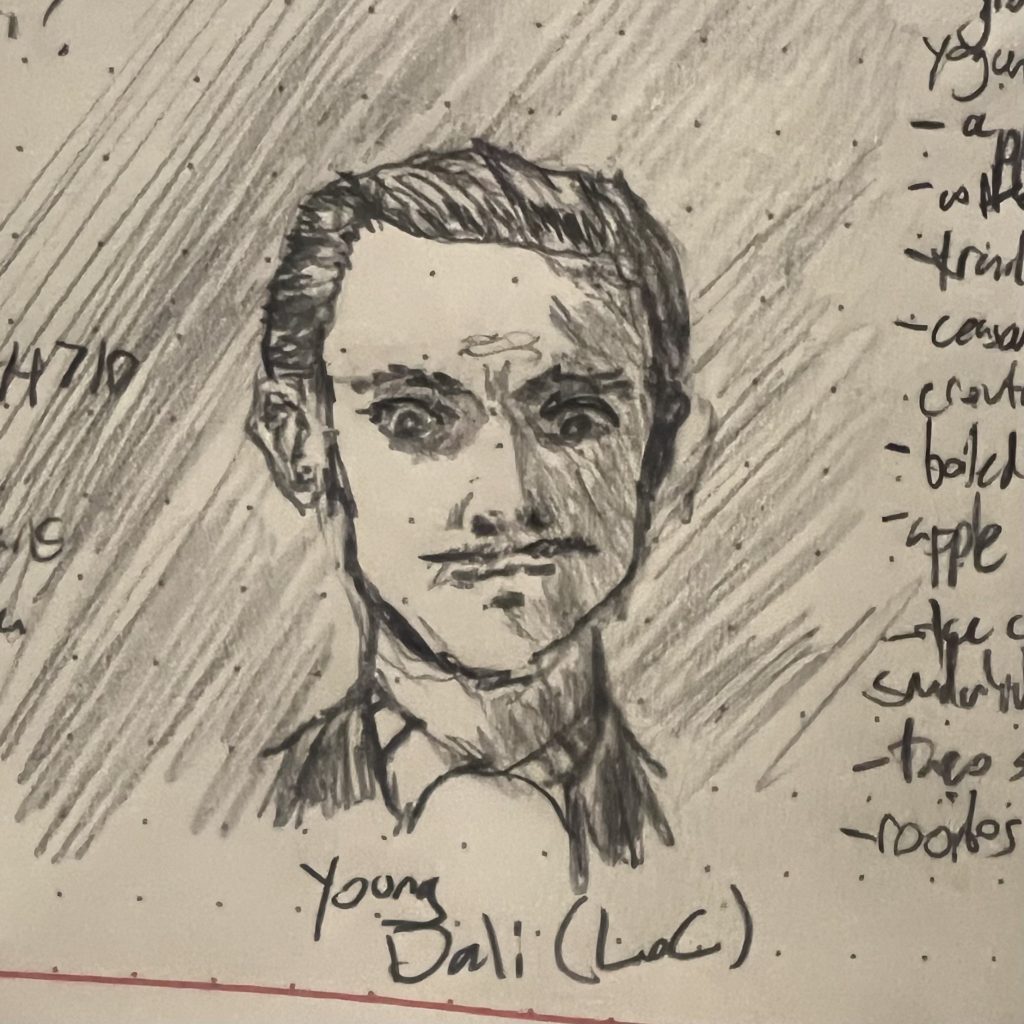Enjoy Halloween with this floating flaming crystal skull digital fidget thingy.

Enjoy Halloween with this floating flaming crystal skull digital fidget thingy.

A lot of my favorite horror films are SNL digital shorts. I’ve been mulling this over for years now (in fact, I just spent the last hour writing about this from a craft perspective, a screed that I mercifully deleted rather than sending).
I think it all comes down to this: horror in film basically relies on four tools:
Jump scares are easiest, mounting dread takes the most time, and squick is often the best way to cash in or make a name for yourself. But it’s always the uncanniness I’m after in horror, that experience Freud described as abruptly seeing the “familiar and old-established” as strange and alien, thus giving the sense of revealing a deeper truth “which ought to have remained hidden but has come to light.”
It’s the horrific uncanniness I love in these comedy skits. In part, this arises from what’s implied about the universe that the characters live in, all the stuff that’s outside the frame (e.g., Jason’s refrigerator, the pizza beast, the old woman across the street, that high school).
But I think the key element—the thing that pushes this beyond “the familiar and old-established made strange and alien” and into the territory of “that which ought to have remained hidden being dragged up into the light” is the fact that the world we actually really live in—where I’m sitting and typing and you’re sitting and reading and we’re both watching these little 3-minute-gems—is also outside the frame.
The awful thing the characters in the movie are about to experience? It’s already happening here. Hell, it’s us. And we’re laughing.
For your viewing pleasure:
This week’s sketch is watercolors and India ink, of a house up the street after the sun has dipped below the treeline, but is still above the horizon:

Back when I was a teen I was taught two ways to use India ink: dip pen and bamboo calligraphy brush. You can do a lot with either, but Jesus are they fiddly. Also, the old bottle of India ink I have is not waterproof, which is great for certain effects, but often maddening overall (esp. against watercolor).
So this was done with Faber-Castell Pitt pens, which are amaaaaazing. Yeah, a dip pen can give you a much finer line, and an ink brush can do really interesting dry-brush and textural things that you can’t coax out of a Pitt pen. But in terms of bang-for-buck (esp. when the “buck” translates to hair-pulling frustration), the Pitt pen is hard to beat:
The India ink is dark and flat and deep, water soluble/flowable when first applied, but then dries absolutely waterproof. They have a ton of different nibs. For this sketch I used a 0.3 fine liner and a soft-brush (the later nicely emulates doing wet-brush work with a Japanese calligraphy brush, giving you all the expressiveness and none of the sorrow). The color of the sky was me experimenting with wet-on-wet watercolor.
I’m callously taking advantage of the Reason for the Season to plug some of my free-to-read/hear horror stories:
“This Place Is Best Shunned“—Allie and Rooster are heading down to Asheville for Rooster’s new gig, a cushy stint as artist-in-residence at UNC. Rooster is more of a con artist than maker of art, but Allie doesn’t mind, because he’s good-looking, charming, and values what she is: a girl with a keen eye for abandoned places and a knack for getting into them. But when they stumble upon an old backcountry church—the perfect backdrop for Rooster’s latest project—they discover that some “abandoned” places have a knack for keeping themselves occupied.…
“Whatever Comes After Calcutta”—It was late in the day when Lyle Morimoto saw the hanged woman and almost crashed his Prius somewhere between Calcutta, Ohio, and whatever the hell came after Calcutta. For hours he’d been sipping warm Gatorade and cruising the crumbling two-lane blacktop that sliced up the scrubby farmland of southern Ohio. He understood that he was not thinking clearly, but that seemed OK, since it also meant not thinking about his ear, or his wife, or Detective Jason Good, or the gun in the pocket of his suit jacket.…
If you simply must purchase something, you might just as well purchase this (especially if you liked any of the above, because it’s all that and moooooore):
There Was a Crooked Man, He Flipped a Crooked House—”Downtrodden architect Glenn Washington and his none-too-bright sidekick Lennie help a crooked real estate baron flip houses in downtrodden Detroit. A house comes up that is too good to gut for parts. Too good to be true. Waaaay too good. Thing is, nothing leads where it should — go through the front door, step out the door on the back porch. Best library ever. And why are the cops nosing around? Non-Euclidian architectural petty-crime adventure, and all that implies.”—Adrian Simmons, Black Gate magazine
You get a two-fer this week:

My son voted for the upper sketch, noting “holy heck I love the shadows on the flowers.” The model for this was a little table near the entrance of the Unitarian church where my congregation held Kol Nidrei service on Oct 11. I’m on our Safety Committee, and so had a shift watching the front door. Thankfully, it was an extremely boring shift, hence the sketch.
The lower sketch is based on Diane Arbus’s “Child with Toy Hand Grenade in Central Park, N.Y.C. 1962.” The sketch maybe looks pretty odd if you aren’t familiar with the reference. (Otto noted, “He’s adorable but I confess the angle of the head is kinda confusing me.” Then, after seeing the original, added “Pfff okay he just looks like that” and “Is that a grenade!?”)
Here’s my photo of a reproduction of Arbus’s original photo (which, stated like that, begins to sorta feel like I’m making a cheap Duchamp joke):

I cannot get over how persuasive the movement is of this snake’s “faux-spider” tail lump-and-floofs is. Structurally, it looks practically nothing like a spider; it’s like a skin tag put on a feather boa. But the way the snake moves it is an amaaaaaaaazing piece of puppetry. I could watch this video all day.
If you want more danger noodles, here’s the excellent Ze Frank explaining how kangaroo rats put snakes in their place:
Just a quick, loose sketch I did of our rabbi at the bimah while she was leading Rosh Hashanah services. (Our particular rabbi trained as a cantor before being ordained, and happens to play harp; harp isn’t a standard part of Jewish services.)
My son voted this sketch of the week because “I really like the curves on the harp. All the geometry in that one is very beautiful.” (I spent most of last week working on faces, which I’m terrible at; weak as it is, this is the best sketch of the lot 🤷♀️)

My son voted for this sketch to share this week. He liked several, but “the fairies one is just too adorable”:

The reference is this photo of my wife and daughter dressed up to go to out local Renaissance Festival a couple weeks ago:

Apparently this hat made my wife look like “Sadie Adler” from Red Dead Redemption II, which I guess bodes poorly for me 🤷♀️
My son nominated this sketch, noting: “That one in the back looks like it has strong opinions.” I can’t quite recall where I saw these little guys, just that it was in a Michigan State Park this past summer, as part of a canoe trip that went moderately off the rails (massive duckweed, inclement weather, thousands of dead fish blocking the river, etc.) This park was maybe our third choice, in terms of places we were supposed to be that night.

For the record, I was almost positive he was either gonna chose the Jubilant Sorceress or Captain Tenacity:

Mostly I like how the two images interact (they were in adjacent slots on the spread). The reference for the sorceress is my wife in a Halloween costume she got for cheap at a thrift shop a few years back, while the captain is me about 20 years ago. Serendipitously, the ratio between their sizes is roughly our real-life size difference.
My best sketch from Week #37-2024 is this one of a young Salvador Dali:

My reference for the sketch was this picture of Dali and Man Ray I stumbled across on the Library of Congress website:

Until I saw this photograph, it never dawned on me that Man Ray might be Jewish (which he was), nor that he was American-born (I thought he was French, because he was most famous for the work he did while living in France), nor that he thought of himself as a painter (I knew him for his photography). 🤦♀️
For the record, the Young Dali sketch narrowly beat out this space captain from Friday, September 13. She is taking no shit, folks:
